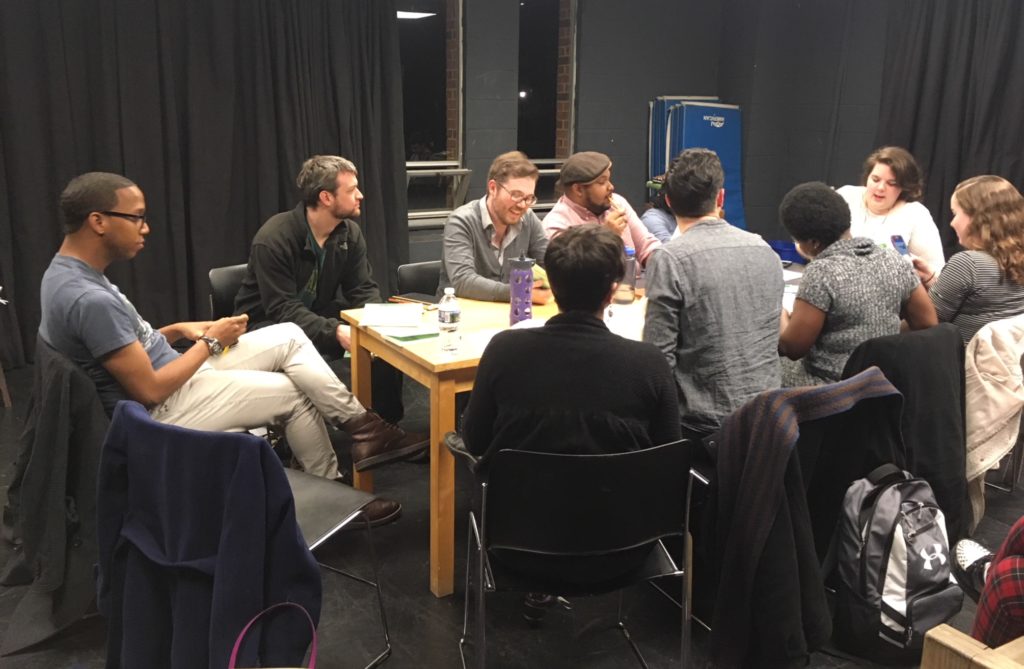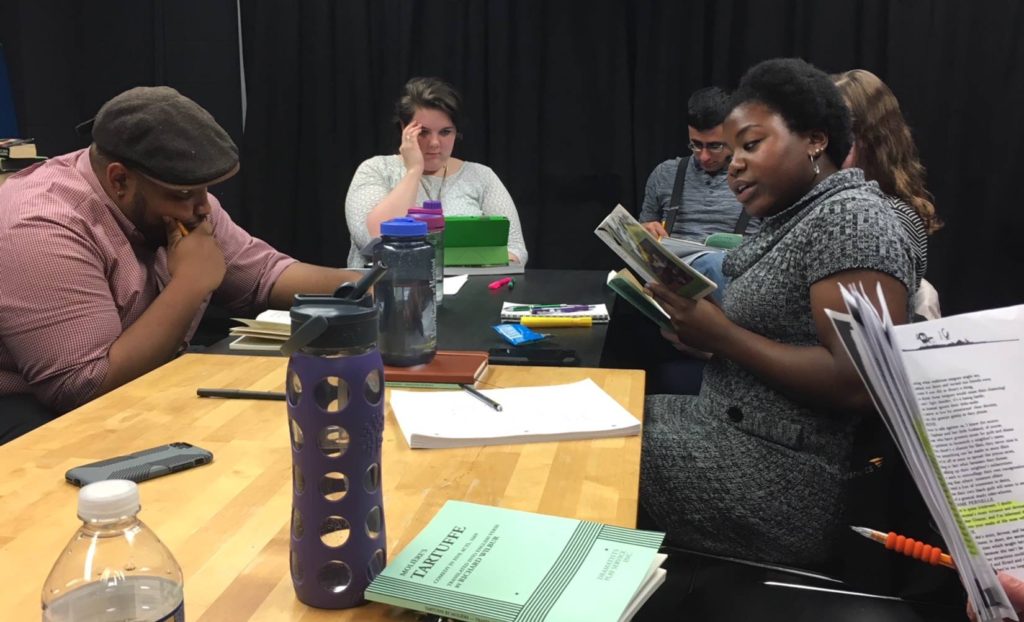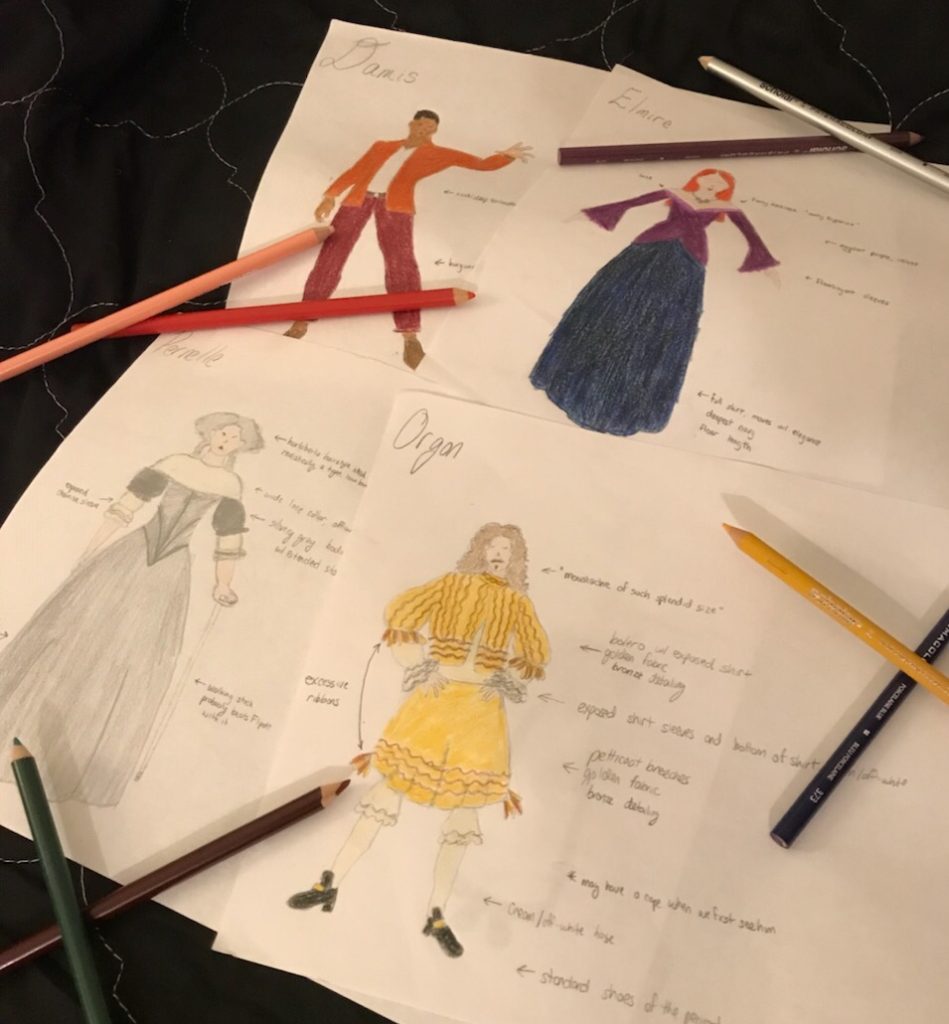By Bridget Grace Sheaff, Director
Our rehearsals got under way on December 11, and in a short amount of time, we have unearthed a great deal about this play. The open dialogue of the rehearsal room around the themes of privilege and agency have been deeply productive. Every person is bringing in an abundance of ideas.
From the director’s chair, I can see the pieces beginning to fall into place. The images and the text are joining together and making a story that is clever, speedy, and a deep punch to the gut. I find myself laughing one moment and cringing the next. In my book, this is a solid sign of the work to come.
Of course, we sometimes find ourselves at odds with both Wilbur and Moliere. A distinctly American cast in 2018 has some differing opinions from the 1968 translator and the 1669 playwright. In those moments, we are faced with a crossroads: do we challenge the text, act against it, push it to the edge of meaning and find something new, or do we accept the differences as an evolution of human experience and use that lens to learn something about our own ideology?
Ideally, a good production will do both. It will stay true to the text and to the intent of the playwright while shifting the contexts, giving a unique perspective on something that, otherwise, we take for granted. As my French Neoclassical professor said, “The game is to aim for the middle, slice between muscle and bone, make ’em laugh, and leave them devastated—no big deal, right?”


